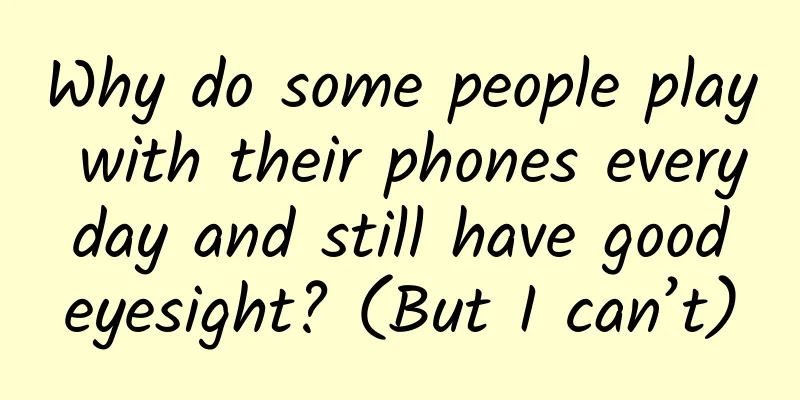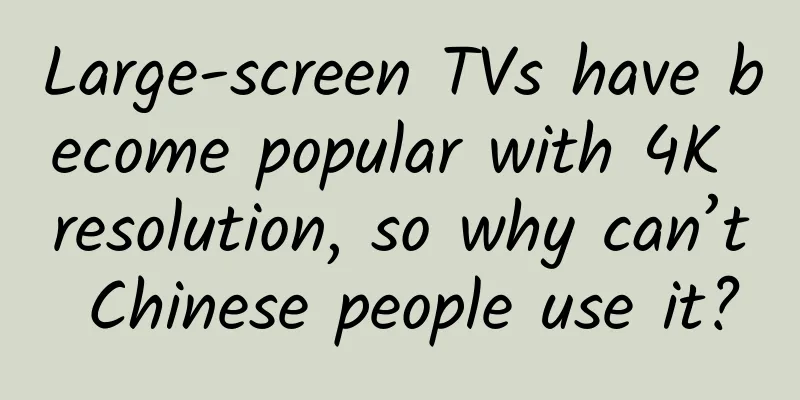Why hasn't Google produced a product that revolutionized the world since search?

|
Google has been a paradise for engineers since its inception, probably because both of its founders were engineers. However, Google's deep-rooted engineering culture may not be entirely conducive to Google's development; technical skills are important, but design thinking is also essential.
What did search tools look like circa 1998? You guys are too young to remember search tools before Google. Well, here are a few pictures for you to get a feel for: In addition to these, there are many others, but they all look similar. The entire webpage is cluttered with search options, ads, sponsored links, and other things that have nothing to do with search - what the hell is all this? In addition to being extremely chaotic, these search tools have another bigger shortcoming: search results. The search engines of that era, such as Hotbot, were actually able to crawl content from the Internet, but the search results could not be displayed in the order that users wanted; Yahoo, for example, could manually match search results, but the results were not ideal at all. Moreover, as the amount of content on the Internet exploded, content crawling became more and more like "fishing in troubled waters", and manual matching also seemed powerless; all of these made people feel more and more painful during the search process. Just then… Google was born Wow! No more clutter (or any more in subsequent iterations). More importantly, Google has developed a clean search algorithm that provides users with more parsed and relevant search results. I still remember the day I used Google for the first time. I was already using search engines - often calling them several times in one search to find the results I wanted. I preferred to use the Yahoo! directory, which recommended each web page with high relevance; but I knew it was incomplete. As a result, at this time, I received an email from my stepfather, who casually mentioned a new search engine called "Google". Although he didn't say much, I was naturally willing to try new things in pursuit of excellence. Without any preparation or hesitation, I was immediately fascinated by its simple user interface. At first I thought it was just temporary, because after all, Google is a newcomer and it is still labeled as "beta", so I didn't have too much expectation for the next search results. I searched. I don't remember what I searched for the first time, but I was blown away by the relevance of the results. I was hooked, and Google became almost the only search engine I used. It instantly made my online experience exponentially better, not just for me, but for everyone else. In the following 16 years, Google's search engine design concept has remained almost unchanged. Through the search engine, Google has successfully integrated an enormous amount of information resources - in the past, it would have taken the entire country several years to accomplish this. This is truly a miracle of design. So the question is, why is Google so successful in its search engine design? The genius of Google search I prefer to analyze design at three levels. You can read my article "Design thinking, unboxed". 1. Strategic design: creating a meaningful experience. 2. Interaction design: creating a useful experience. 3. Emotional design: create a pleasant experience. Google's search engine design strategy is extremely forward-looking. Since the birth of the World Wide Web, its user experience has been extremely dependent on search engines; however, the situation in 1998 was that no one could provide complete and useful search results, and people could only endure it silently. In this situation, Larry Page and Sergey Brin realized this problem and developed an algorithm that can be used to parse web page databases and rank results to ensure that the top results are the most relevant, thus meeting the needs of most users. Moreover, after completely solving the search problem, Google used its search service to create a revenue model that can enhance the user experience: matching useful ads based on the user's search behavior. Thus, Google successfully found a revenue model while solving the user's problem. This is what is called a brilliant strategic design. Google also provides an extremely simple user experience. There is only one search box on the Google homepage, and no other visible options; there is nothing redundant, and the search box is placed in the center. In this way, users will never make mistakes, they just need to type in that search box and search. Of course, the results presented after the search are also quite simple. It’s not easy to analyze the original Google search from the perspective of emotional design. After all, it wasn’t as colorful and moving as Bing search is today; but the large amount of white space on Google’s search page was definitely eye-catching in 1998, and it could even be said to be ahead of its time. Since then, Google has existed like a quiet place in the noisy and chaotic world of the Internet; its original design framework has withstood the test of time and has been preserved to this day. A good design should be based on the harmony of meaning, usability and pleasure; Google Search has achieved this and it deserves this praise. But the question is, after the initial design is completed, how about the design of Google afterwards? Why can't Google do it? Google Search is an extremely good and contagious design, but Google has not launched a "well-designed" product again. The success of Google Search in design did not continue with Google Maps, which can be said to be a complete break from Google's original rhythm in product design. In fact, Google did not "design" its own maps, but chose to acquire them from a company called "Where 2 Technology" in Sydney, Australia. So I began to think: Perhaps Google's initial brilliant design in search and the huge success that it brought was just the most valuable accident in the universe (at least for Google). From my consistent observation of Google, I think that Google's most basic belief is engineering rather than design. Google encourages its engineers to develop some cool products, then release the beta version, and then repeatedly debug and improve the products through data analysis such as A/B testing. This process does not require intervention from the user's perspective, nor does it conduct investigations and analyses of user problems that need to be solved, or even understand the user's personal experience in the process of using Google products. If this statement is correct, then Google is not user-centric in its development process, and it fundamentally lacks a perspective to think about problems from a design level. Larry Page seems to be very concerned about design, but what he emphasizes is "beauty" rather than "solving problems through design". Under Page's leadership, Google created a new design style, Material Design, and tried to make it a unified aesthetic style for all Google products to enhance the user experience. But in my opinion, Google is ultimately an engineer-driven company, just as Apple is driven by designers. Google believes in technology, and design is only used by Google for the last level of improvement and polishing. As I said in my article "Disruption By Design", I believe that only "design innovation" - not "technological innovation" - can drive the development of business and industry. I think that after the initial glimpse and short-lived success in design, Google is a case study: it tried so hard to get 100 points through technological innovation, but unfortunately lost this point due to the lack of design thinking. Because of this, some very powerful engineering works - such as Google Wave in software and Google Glass in hardware - have (IMHO) completely failed. Google Wave
Google glass I don’t hold out much hope that Google will come up with some significant design innovation unless they fundamentally change, but of course, due to the sheer size of Google’s engineering output, it’s more likely than most smaller companies to shock the world with another great design innovation. ***, let us imagine: with such powerful technical resources, if Google had a few more people who understand design thinking, I wonder how many things it would do to change the world. |
<<: Top 10 Weird Psychological Characteristics of Social Networking Site Users
>>: How programmers can quickly recover from "professional burnout"
Recommend
There are so many selling points for a product, how can we find the key points that impress users?
I believe many people have encountered this situa...
Is 5G radiation really greater than 4G? Can base station radiation cause cancer? These misunderstandings should be clarified
Recently, my family group has been flooded with a...
Fan Jian Taobao Tmall Courses - Business Advisor Data Analysis Courses (Advanced) to help you run your store easily
Fan Jian Taobao Tmall Courses - Business Advisor ...
Are you enjoying the joy of shopping before the holidays? Beware! This type of fraud calls are common →
"Hello, I am the customer service of ×× Expr...
Analysis of Douyin operations of 24 brands including NetEase, Xiaomi, Alipay and Haidilao
You missed the bonus of Weibo big V in 2009, and ...
No idea about product marketing on Xiaohongshu and Douyin? 7 selling point extraction rules
In 2021, platforms such as Douyin and Xiaohongshu...
When will the 2022 recruits leave? Is it better to recruit soldiers in March or September?
2022 is the second year of the implementation of ...
Hubble discovers that planets are having a hard time forming in this star cluster 20,000 light-years away
Astronomers using the Hubble Space Telescope have...
The most comprehensive APP operation and promotion plan!
Now that you have the APP, the next step is to op...
New Studio - Recording, mixing, dubbing, Baidu cloud download, movie sound processing process
New Studio - Recording, Mixing and Dubbing Resour...
Can the former Android giant, which has suffered consecutive losses, return to its glory by relying on these businesses?
I believe that in recent days, everyone must have...
From solar energy and photovoltaics to hydrogen energy civilization - a new outlet for power electronics
When it comes to hydrogen, children all know it. ...
Why do I still have rotten teeth even though I brush my teeth every day? Keep these 4 tips in mind when cleaning your mouth!
After the current young people have frequently be...
No rice noodle can escape from here! Let’s take a look at the “leaders” in the rice noodle industry in various parts of Jiangxi.
To relieve your homesickness! Let’s take a look a...
Why is the Mingsha Mountain in Muli, Xinjiang, known as the "world's loudest"?
Your browser does not support the video tag On th...
![King of Glory Chicken CF rental project, stable dozens of accounts every day [video tutorial + permanent script]](/upload/images/67cc003b4da36.webp)








